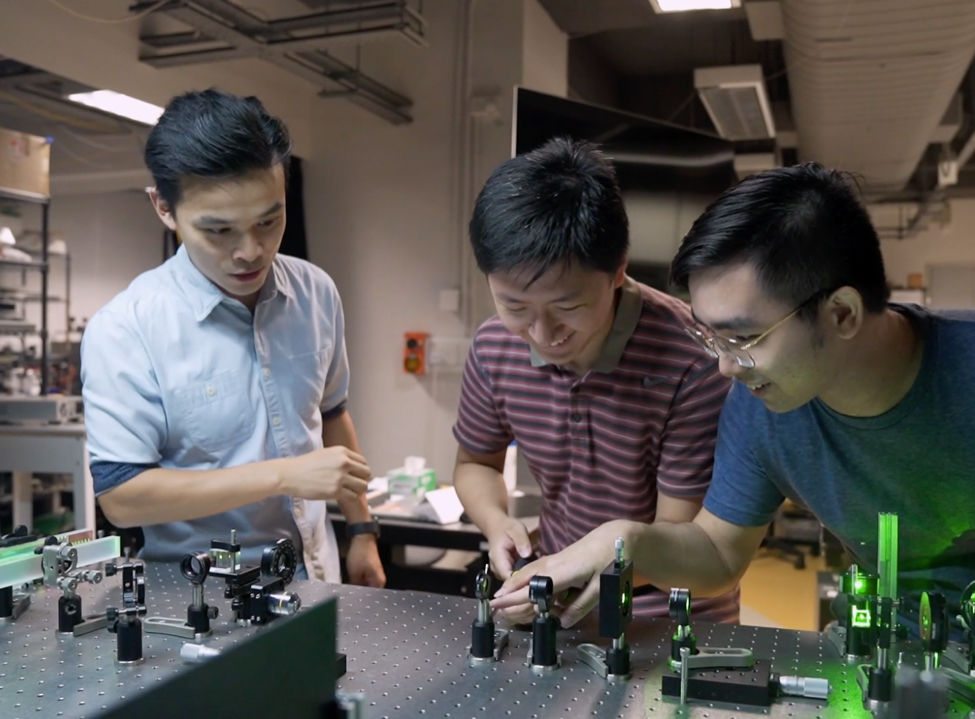In the senior years (Years 3-4), students have the opportunity to specialize in one of the following areas, based on their interests and career goals:

Biomaterials and Tissue Engineering:
materials and systems for regenerative medicine and medical device applications.

Biomechanics and Biotransport:
Investigating mechanical properties of biological systems and transport phenomena in the human body.

Biomedical Imaging Technologies:
Developing transformational imaging techniques to enhance medical diagnostics and treatment.

Computation and AI in biomedicine:
Harnessing the revolution in machine learning and AI for precision medicine and healthcare innovations.
Engineering disciplines

Electronics / Mechanical Engineering

Artificial Intelligence

Mathematics & Data Science

Curriculum
Our BEng (BME) curriculum provides students with a comprehensive foundation (in Year 1-2) in both life sciences and quantitative engineering. Through rigorous training in data science, mechanics, electronics, chemistry and biology, students develop the ability to think about biological problems, reason quantitatively, and apply engineering principles across physiological, cellular, and genomic systems to address real-world biomedical challenges.



Why BME at HKU?
Interdisciplinary Training
Our programme uniquely integrates expertise from the world-leading Faculties of Medicine, Engineering, Dentistry, and Science at HKU, providing a comprehensive biomedical engineering education.
Flexible Curriculum Design
Students can tailor their study plans based on their strengths and interests, allowing them to explore diverse biomedical engineering problems. The programme also offers an articulation pathway to MBBS.
Diverse Experiential Learning
Diverse hands-on learning experience and practical training opportunities, including a junior-year lab shadowing programme, BME-specific training, summer internships, and final year projects.e the product here. Include important features, pricing and other relevant info. Consider adding an image or video of the product.






Programme
The Bachelor of Engineering in Biomedical Engineering (BEng(BME)) at HKU is a unique interdisciplinary programme offered in partnership with the Faculties of Medicine, Engineering, Dentistry, and Sciences. Building on our 20-year experience in delivering this curriculum, it is designed to nurture the next generation of biomedical engineers who will combine engineering rigor with biomedical innovation to improve health and quality of life. The programme equips students to:
-
Apply engineering solutions to advance biomedical research and transform healthcare.
-
Innovate and translate cutting-edge technologies into real-world medical applications.
-
Address global health challenges with ethical, professional, and social responsibility.






Biomedical Sciences

Cell & Molecular Biology

Systems Biology

Biochemistry

Diverse Career Pathways
Through interdisciplinary education and dedicated mentorship, our programme provides motivation for life-long learning and a passion for innovation, entrepreneurial spirit and scientific discovery. The programme prepares BME graduates with a broad career pathways in the biotechnology industry in research and development (including biotechnology start-ups), practising as medical physicists in hospitals, biomedical engineers in hospitals and other public sectors, and pursuing further education at postgraduate level (Master or PhD degrees) in Hong Kong or overseas.

Professional Recognition
The BEng(BME) is accredited by the Hong Kong Institution of Engineers (HKIE). This professional qualification is mutually recognized by many countries world-wide, such as the United States, Australia, Canada, Japan, Korea, New Zealand, Singapore and South Africa. Such recognition widens graduates' career opportunities globally in both industry and the public sector.











